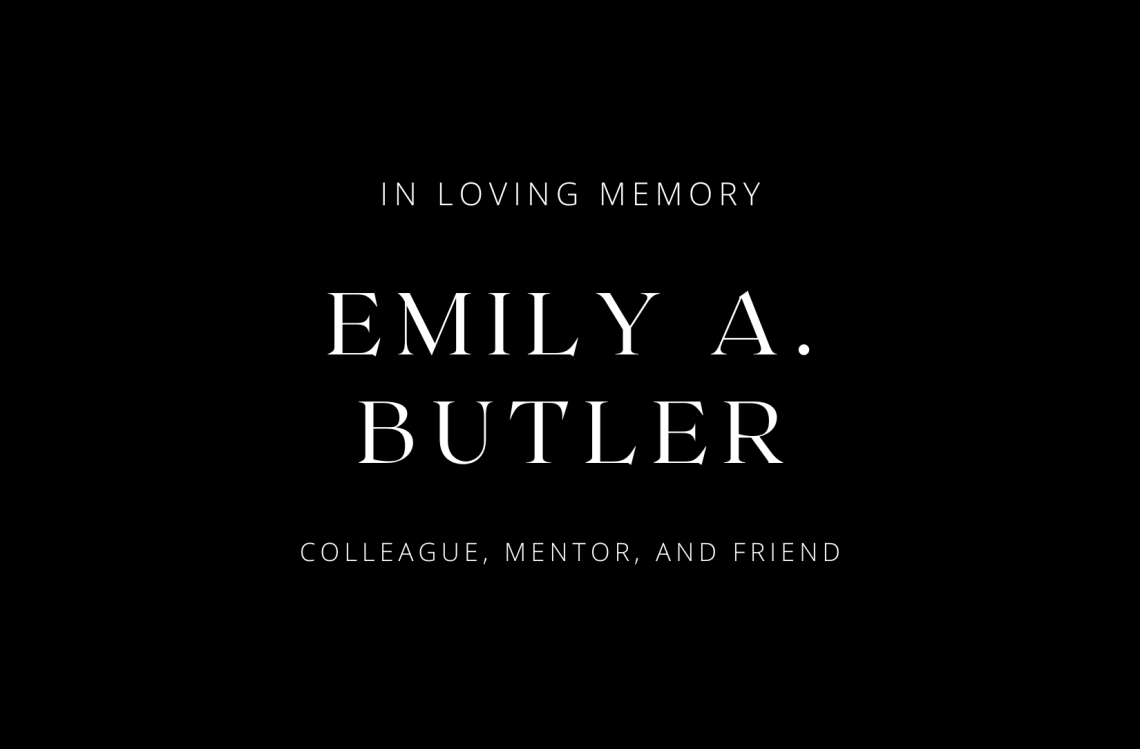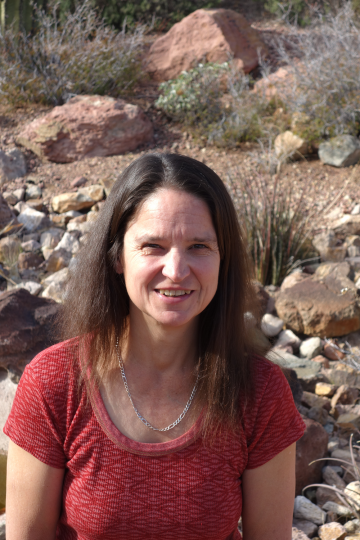In Memoriam: Emily Butler

Emily A. Butler, professor of family studies and human development in the College of Agriculture, Life and Environmental Sciences, died Jan. 31. She is being remembered by family, friends, colleagues and the students she inspired and nurtured throughout her career as a trailblazing researcher and supportive mentor. She is survived by her husband, Jacobus Barnard, professor in the Department of Computer Science, her parents and her nephew.
"Emily was a staunch advocate for graduate education, she was a truly gifted mentor, teacher and

researcher and was not afraid to speak her mind. I value frank honesty and I valued Emily's perspective," said Laura Scaramella, director of the Norton School of Human Ecology. "She had a wonderful sense of humor and a truly infectious laugh."
Butler first came to the University in 2003 as a postdoctoral researcher in the Department of Psychology and joined the John and Doris Norton School of Human Ecology faculty in 2006. Her research focused on the emotional, self-regulatory and relationship mechanisms that contribute to physical, mental and
social well-being. At the forefront of the quantitative transformation in social sciences, she was an internationally recognized scholar in the field of emotional and behavioral dynamics. Her research was supported by the National Institutes of Health, the National Science Foundation, the American Cancer
Society and the Defense Advanced Research Projects Agency, bringing more than $12 million to the University of Arizona.
Her interdisciplinary, collaborative approach was trailblazing, according to Parker Antin, associate vice president for research in the Division of Agriculture, Life and Veterinary Sciences, and Cooperative Extension.
Butler regularly collaborated on grants and publications with faculty in psychology, psychiatry, nursing and computer science. She was a member of the Cancer Prevention and Control Program at the University of Arizona Cancer Center and an affiliated faculty member in the Department of Psychology and the Statistics Graduate Interdisciplinary Program. She also led an interdisciplinary research initiative on health, emotion, and relationships through the Frances McClelland Institute For Children, Youth and Families.
Butler published nearly 100 peer-reviewed journal articles and was on the editorial board of several academic journals. Among her numerous awards, Butler was recognized by the College of Agriculture, Life and Environmental Sciences with the Bart Cardon Early Career Faculty Teaching Award in 2010 and the Research Faculty of the Year Award in 2020.
"She accepted her Research Faculty of the Year award over Zoom from a remote campground where she was spending the summer hiking," said Victoria Ligon, who knew Butler best from her own time as a Norton School graduate student and later as a colleague in her role as an assistant professor of practice in personal and family financial planning. "To me, she embodied the dream of 'having it all' as she excelled in her career while also unapologetically pursuing her personal passions."
"Emily's achievements are truly reflective of her love for science and dedication to educating future scientists," said Melissa Barnett, associate professor of family studies and human development and the Director of the Francis McClelland Institute. During her time at the University, Butler chaired dozens of dissertation and master's thesis committees. She continued to provide mentorship to students long past graduation. She also stepped up to become a supportive mentor to students who may not have completed their doctoral degrees without her mentorship.
"She did this truly to help the students, not to advance her own career, as they did not work in her lab and their research interests were often outside of her own," Barnett said. Butler tackled problems head-on and tirelessly advocated for the needs of graduate students. She regularly worked towards policies and programs that provided opportunities for students, and her approach to graduate education was guided by a strong sense of equity, according to her colleagues. "She truly was a champion for graduate education, in general, and for her students, in particular," Ligon said.
Donations can be made in memory of Emily Butler to the Norton School Cat-A-List graduate student scholarship, in recognition of her commitment to graduate students in the Family Studies and Human Development program.

